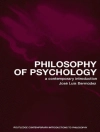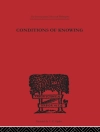For some centuries now the western world has endeavored to choose between rationalism and empiricism; or, when a choice was found impossible, somehow to reconcile them. But the particular brands of both which were taken for granted in confronting the problem were s Ubjective: individual human reasoning stood for rationalism and private sense experience for empiricism. Since Plato it has been known that reasoning and feeling are often in conflict. No wonder that a standard for deciding between them or for harmonizing the two was found difficult to come by. Fortunately, due to the revival of realism, a way out presented itself, and we could now consider rationalism and empiricism on some kind of objective basis. In other words, rationalism is a theory about something outside us, and reasoning involves the utilization of a logic which in no wise depends upon our knowledge of it. Similarly; sense experience reveals the existence of data which can be reached through the senses but which in no way relies upon experience for its existence. Thus both reasoning and sensing bring us fragmentary news about an external world which contains not only logic and value but also the prospects for their reconciliation. The implicit philosophy of nominalism is self-liquidating. Where is the proposition which asserts or takes for granted the sole reality of actual physical particulars to get its reality? The meaning of it as a proposition has no place among the particulars.
James K. Feibleman
Foundations of empiricism [PDF ebook]
Foundations of empiricism [PDF ebook]
ซื้อ eBook เล่มนี้และรับฟรีอีก 1 เล่ม!
ภาษา อังกฤษ ● รูป PDF ● ISBN 9789401190886 ● สำนักพิมพ์ Springer Netherlands ● การตีพิมพ์ 2012 ● ที่สามารถดาวน์โหลดได้ 3 ครั้ง ● เงินตรา EUR ● ID 4666725 ● ป้องกันการคัดลอก Adobe DRM
ต้องใช้เครื่องอ่านหนังสืออิเล็กทรอนิกส์ที่มีความสามารถ DRM












